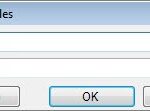Choosing the right reference management software is crucial for academics, researchers, and students alike. With numerous options available, each boasting a unique set of features, making an informed decision can be overwhelming. This comparison chart provides a detailed overview of some of the leading reference management tools: EndNote Desktop, EndNote Basic, Mendeley, and Zotero. By examining key features side-by-side, this article aims to simplify your selection process and guide you towards the software that best fits your research needs.
Feature by Feature Comparison of Reference Management Software
| Feature | EndNote Desktop | EndNote Basic | Mendeley | Zotero |
|---|---|---|---|---|
| Cost | Requires a one-time purchase for an individual license | Free; enhanced features for UW-Madison users with @wisc.edu accounts | Free; optional paid plans for additional storage and private groups | Free; paid options for increased cloud storage |
| Operating System Compatibility | Windows and Mac | Web-based (accessible on any OS with a browser) | Windows, Mac, Linux | Windows, Mac, Linux |
| Cross-Platform Data Export | Yes | Yes | Yes | Yes |
| Global Find and Replace | Yes | Yes | No | No |
| Duplicate Entry Detection | Yes | Yes | Yes | Yes |
| Journal Abbreviation Lists | 12 pre-installed lists; manual installation per library required | None | Abbreviation based on selected citation style; editable | Automatic abbreviation in Index Medicus/MEDLINE format (version 4.0+) |
| Attachment Capacity | Up to 45 attachments per citation; unlimited file size and cloud storage | Unlimited attachments per citation and file size; 2GB total storage limit | Unlimited attachments per citation; 250MB file size limit; 2GB free storage | Unlimited attachments per citation and file size; 300MB free storage |
| PDF Citation Extraction | Yes, using DOI or PubMed ID fields | No | Yes, analyzes PDF text, DOI, Arxiv, PubMed, Crossref IDs; Mendeley database matching | Yes, uses DOI and extracted PDF data; Google Scholar matching |
| Note-Taking Features | Dedicated “notes” field for references | “Notes” field available | “Notes” tab within the desktop application | Standalone notes or notes attached to references |
| PDF Annotation | Yes | No | Yes | No, but syncs PDFs annotated with third-party software |
| Full-Text PDF Search | Yes | No | Yes | Yes |
| Direct Database Search | Yes, for UW-Madison library subscriptions | Yes: Web of Science, PubMed, UW Library Catalog | Mendeley database search (user libraries) | No direct database search |
| Direct Export from Online Databases | Yes, via Connection files or EndNote Click | Yes, via EndNote Click | Yes, via web importer | Yes, via web translators |
| Import Filters | 500+ filters available list | Yes | Web importer for supported sites and databases web importer | Translators for wikis, websites, databases; web snapshots translators |
| Bibliography and In-text Citation Creation | Yes | Yes | Yes | Yes |
| Citation Style Customization | Yes | No | Yes, via Mendeley CSL Editor | Yes, via Citation Style Editor |
| Collaboration and Sharing | Free sharing with up to 200 EndNote users | Share account (no attachments) or create editable shared groups | Public and private groups; automatic sync across devices; 1 free private group (paid plans for more) | Public and private groups; automatic sync across devices |
| Read-Only Sharing | Yes (library lock) | Yes (read-only share groups) | Yes (via “follow” option) | Yes (group member settings) |
| Mobile Applications | iOS app | No | iOS and Android apps | Third-party iOS and Android apps |
| Webpage Screen Capture | No | No | No | Yes |
| Cloud Storage & Record Limit | Unlimited cloud storage; unlimited records | 2GB cloud storage; 10,000 records | 2GB cloud storage; unlimited records | 300MB cloud storage; unlimited records |
| Reference Types | 50 pre-defined (customizable), 3 user-created | 51 pre-defined | 20 pre-defined | 38 pre-defined |
| Auto-complete Data Entry | Yes (author, keywords, journal title) | No | Yes (journal title, tags, keywords) | Yes (author, journal title, tags) |
| Spell Check | Yes | No | No | No |
| Sorting Options | Any field | Author, title, year, etc. | Any field | Any field |
| Field-Specific Search | Yes, any field | No (full record search only) | Yes (author, title, publication, year, notes) | Yes, any field |
| RSS Feeds | No | No | Yes | Yes |
| Google Docs Integration | No | No | No | Yes, via Zotero Connector |
Key Considerations When Choosing Your Reference Manager
Beyond the detailed feature comparison chart, consider these crucial aspects when selecting the best reference management software for your needs:
- Budget: EndNote Desktop requires a one-time purchase, while EndNote Basic, Mendeley, and Zotero offer free versions with optional paid upgrades. Evaluate your budget and whether the paid features are necessary for your workflow.
- Operating System: Ensure the software is compatible with your primary operating system (Windows, Mac, Linux). Web-based tools like EndNote Basic offer cross-platform accessibility via any web browser.
- Storage Needs: If you work with numerous large PDF files, consider the cloud storage limitations of the free versions. Mendeley and EndNote Basic offer 2GB, while Zotero provides 300MB in their free tiers. EndNote Desktop offers unlimited storage.
- Collaboration Requirements: If you frequently collaborate with others, assess the sharing and group features. EndNote, Mendeley, and Zotero all offer collaboration functionalities, but the specifics vary.
- Integration with Writing Tools: Zotero’s Google Docs integration is a distinct advantage for users who prefer Google Docs for writing. All four tools integrate with Microsoft Word for citation and bibliography generation.
- Ease of Use and User Interface: While not directly compared in the chart, the user-friendliness of each software is important. Consider trying free versions or demos to assess which interface you find most intuitive.
Conclusion: Selecting the Right Tool for Your Research
This comparison chart and overview provide a solid foundation for choosing your reference management software. By carefully considering the features, cost, compatibility, and your individual research workflow, you can confidently select the tool that will streamline your citation management process and enhance your research productivity. Remember to explore the linked resources for each software to gain even deeper insights before making your final decision.

